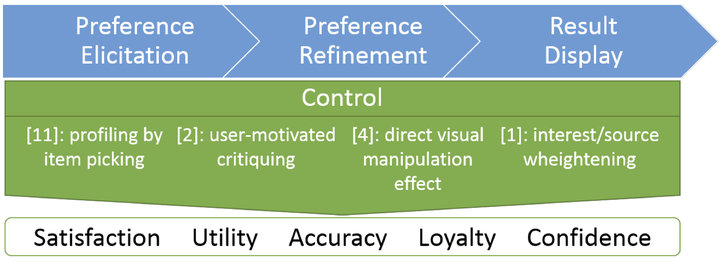
Abstract
The aspect of control in recommender systems has already been extensively researched in the past. Quite a number of studies performed by various researchers reported that an increase in control had a positive effect for example on user satisfaction with a system, or recommendation accuracy. Recent studies investigated whether this positive effect of control applies to all users, or finer distinctions have to be made between different user groups, which in turn require different levels of control. Those studies identified several characteristics, along which users could be divided into groups: expertise in recommender systems, domain knowledge, trusting propensity, persistence. They reported different needs of control for different user groups. However, the effect of those characteristics has not been systematically examined with regard to all three recommendation phases introduced earlier by Pu and Zhang, namely initial preference elicitation, preference refinement, result display. This paper suggests, that for different levels of expertise and trust, different levels of control are necessary during preference elicitation, whereas persistence does not play a prevalent role in this phase. Further assumptions are made for preference refinement and result display. In addition to the three phases, context, type of information required and visualization of control methods are identified as factors influencing the request of users for control.